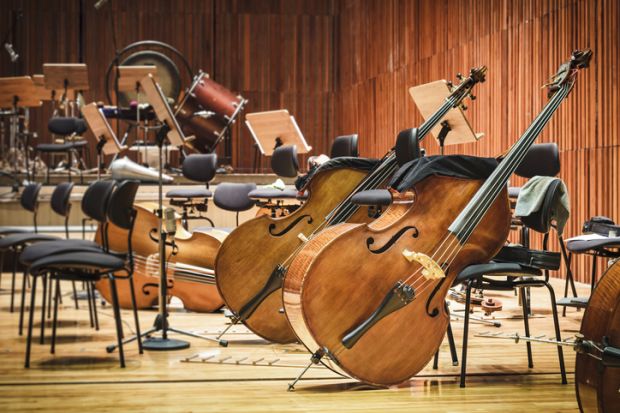In these unsettling times, the epigram attributed to Winston Churchill that we should “never let a good crisis go to waste” has become a touchstone for many political and business leaders.
For the university sector, however, the maxim suggested by Game of Thrones’ arch manipulator Petyr Baelish is arguably more fitting. “Chaos is a ladder,” explains the character known as Littlefinger, focusing more emphatically on the opportunism that is only implicit in Churchill’s more humorous aphorism.
Some of the institutional responses seen in the UK, US and Australia bear the hallmarks of the Machiavellian manoeuvres that Littlefinger endorses, with the swingeing cuts at some universities going far beyond what is necessary, even amid a global pandemic.
Take the decision by the Ohio-based?John Carroll University?to or the recent by Monash University’s Sir Zelman Cowen School of Music, in Melbourne, that musicology and ethnomusicology specialisms are to be disestablished as part of cuts that will see the loss of almost 280 jobs.
成人VR视频
These and other decisions have been taken when the full financial impact of Covid-19 is still unknown. The UK’s University and Colleges Admissions Service, for instance, that universities there have seen a 12 per cent increase in the number of student from outside the EU holding an offer to begin studying this autumn, compared with last year; the increase for students overall is 1 per cent.
In the US, the situation is similar, with 2020 enrolments in both public and private four-year universities over the previous summer. And The Guardian that early enrolment figures at some Australian universities are suggesting a 37 per cent increase compared with the same time last year.
成人VR视频
Because of the ways higher education institutions now typically govern and manage themselves, however, it has become increasingly hard to interrogate the financial basis for academic decisions, crisis or no crisis. A ?for the Australian edition of The Conversation, for instance, observed that detailed operational data for universities are now largely inaccessible to academic staff, let alone the taxpayer.
Yet the academic implications of such financial decisions can be profound. On Monash’s own website, its School of Music that musicology and ethnomusicology are subject areas for students who are “interested in the big issues” and big questions like “why does music matter?” and “how do understandings of music differ across time, place and culture?”. Are we to assume that Monash no longer believes that such questions are important for its students?
For John Carroll University, similarly, the question that seems not to have been considered is what the loss of art history might mean for its understanding of what a liberal arts curriculum actually is.
Are we now witnessing, in fact, the very purpose of a university being permanently realigned? The?post-Covid changes to Australia’s higher education fee system, by the Australian parliament this week, have laid out clear financial incentives for students to move away from creative arts and humanities courses towards ones with apparently better job outcomes.
成人VR视频
These changes were backed up by what Australia’s education minister Dan Tehan later to be erroneous data concerning the supposed poor employment rates for arts graduates. The underlying message is, however, clear. Pandemic or not, universities should be focused on providing “job-ready” graduates for the Australian economy, not independent-minded, culturally literate, critical thinking ones.
This renewed push to cement a fundamentally instrumentalist justification for the humanities is also finding an (otherwise unlikely) ally among advocates of explicitly progressive social justice causes. For instance, Monash music professor Cat Hope has recently introduced and argued for the decentring of traditional subject areas on the basis that “students graduating from Monash University should be familiar with repertoire that reflects the workplace to which students aspire”. Final-year performance recitals must now include a work by a composer identifying as female or non-binary. Other issues that might bear on why one composer might be favoured over another, such as class, culture or quality, inevitably recede into the background while identity itself becomes an incontestable criterion of value.
To be sure, graduate employability and a commitment to gender equity are laudable aims. But by giving any externally imposed condition a controlling interest in course design and content, we run the risk of ceding the principle of scholarly freedom to political expediency. Research and teaching become an exercise in world view affirmation rather than examination, one in which scholarly labour is valued first and foremost for its capacity to meet predetermined targets rather than its ability to encourage students to question, seek evidence, think independently and to examine controversial and unpopular positions. All the while, the underlying economic and political context that controls life on and off campus remains essentially unchallenged.
If the current crisis is indeed also an opportunity not to be wasted, then let that hold true for academics themselves, not just for those who manage them. Now is the time to redouble efforts to defend the autonomy and integrity of scholarly work and robustly interrogate the reasons we are given for any externally imposed discipline-altering decision. As the president of John Carroll’s staff union , if instead we acquiesce to becoming employees who can be redirected or fired at any time without a substantive academic or financial justification, “then we don’t have true academic freedom”.
成人VR视频
Without that, we lose the ability to do the fundamental job of a university: to be society’s critic and conscience.?
Peter Tregear is dean of St Mark’s College in Adelaide and former head of the Australian National University music school.
成人VR视频
Register to continue
Why register?
- Registration is free and only takes a moment
- Once registered, you can read 3 articles a month
- Sign up for our newsletter
Subscribe
Or subscribe for unlimited access to:
- Unlimited access to news, views, insights & reviews
- Digital editions
- Digital access to 罢贬贰’蝉 university and college rankings analysis
Already registered or a current subscriber?








